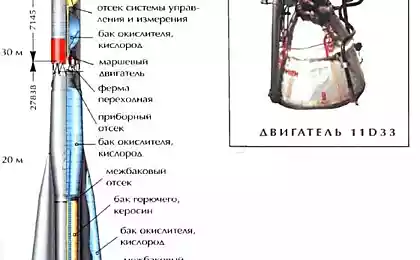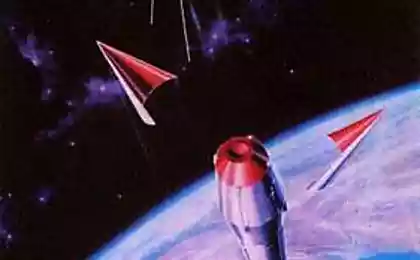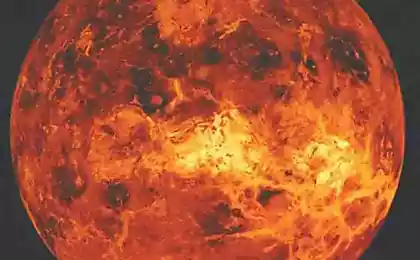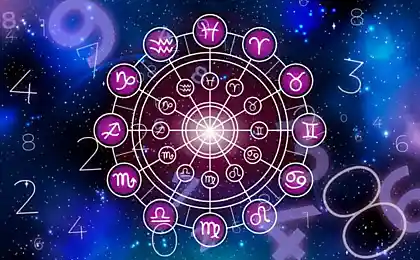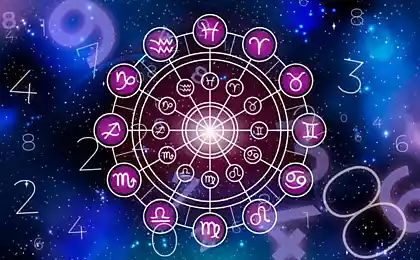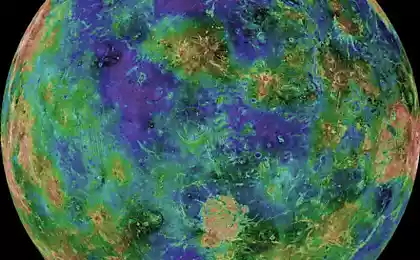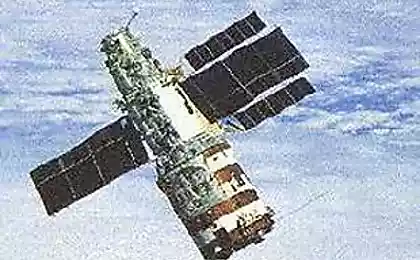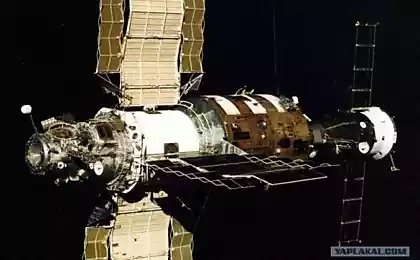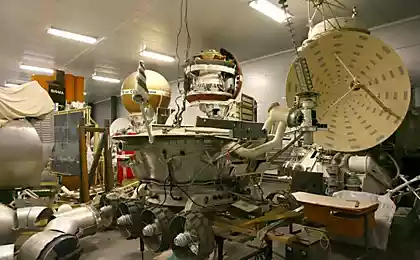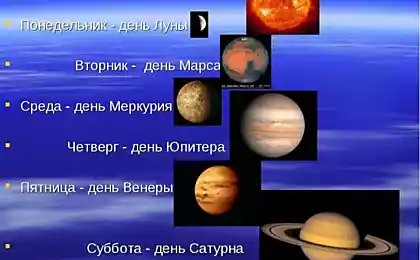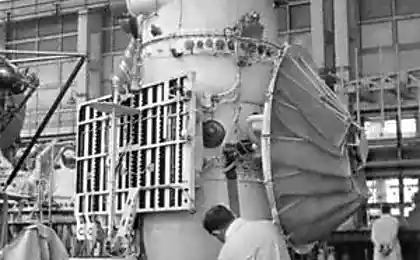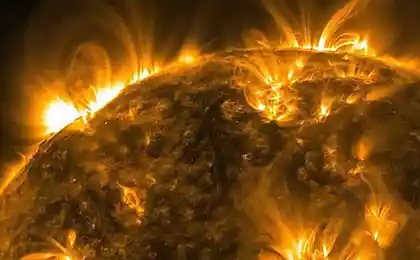430
Repeat the Earth the path of Venus
Eighty four million eight hundred seventy nine thousand two hundred fifty two
Venus is terrible no doubt about it. Seriously, hot as an oven, the atmospheric pressure is 90 times greater than on Earth, and instead of rain water on the tormented surface rains sulfuric acid. Take a step on any point on the surface of Venus, and she will kill you in the blink of an eye.
Let's get Venus in the Sun and save her from this torment. Its proximity significantly reduces the value of our planet, and who knows, if we find someday a use for it. You can argue that Venus is interesting because it is within the "Goldilocks zone", that is in the habitable zone of the Solar system, and that means that sometime in the distant past on the planet could be water. But now it's not there, and we're not sure she would even be there. Maybe Venus in the past was quite different, and God knows who pushed her down the slippery path of acid, Chad and stupor.
So what happened to Venus? In many respects our planet and Venus are very similar. Size and weight are almost the same, some elements of (roughly) — too. But if you find yourself on the surface of Venus, nature will meet you not the most appropriately. Land much more hospitable.
In the distant past the Sun was dimmer and colder than it is now. Cool enough that Venus was much more Earth-like than today, with rivers, lakes and oceans. The spacecraft "pioneer" NASA studied the planet under a thick layer of clouds and found that once on the surface of Venus has flowing liquid water. Perhaps, in this liquid water and life.
But what happened next. Venus is about a third closer to the Sun than Earth and receives almost twice the solar radiation. The sun slowly warmed the planet for billions of years. At some point, the planet reached a critical point, when water on the surface of Venus completely evaporated into the atmosphere.
Water vapor is a powerful greenhouse gas, and that only added to the temperature rise that led to the greenhouse effect on Venus. Ultraviolet light from the Sun splits water vapor into oxygen and hydrogen. Hydrogen is light enough to leave the atmosphere of Venus into space, while the oxygen combines with the carbon and formed a dense atmosphere of carbon dioxide that we are seeing now. Without hydrogen water Venus will never return.
You may have started to worry what on Earth might happen the same. But don't panic. According to experts, human activity will not lead to such a crazy global warming. There will be only sluggish warming that we have seen for many years. With him we can handle it.
The sun continues to be slowly heated. Through billions of years the temperature on Earth will become unbearable and the oceans will evaporate. Then the Earth and Venus will again be planets-sisters and we will be able to send both planets to the Sun.
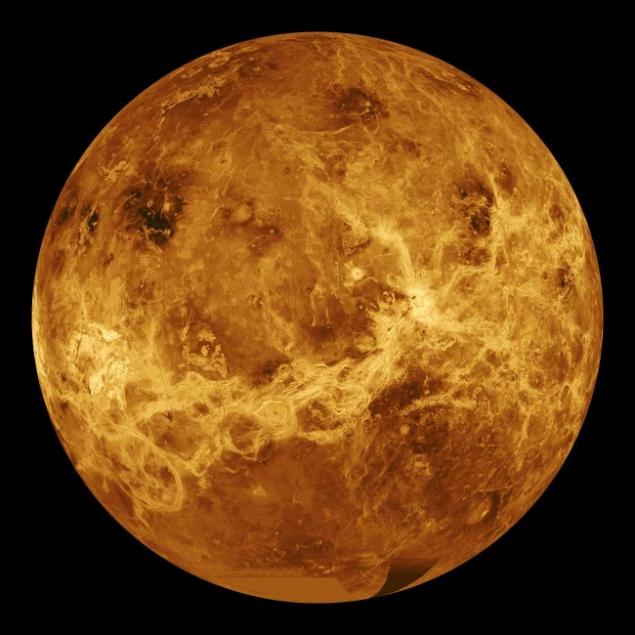
Source: hi-news.ru
Venus is terrible no doubt about it. Seriously, hot as an oven, the atmospheric pressure is 90 times greater than on Earth, and instead of rain water on the tormented surface rains sulfuric acid. Take a step on any point on the surface of Venus, and she will kill you in the blink of an eye.
Let's get Venus in the Sun and save her from this torment. Its proximity significantly reduces the value of our planet, and who knows, if we find someday a use for it. You can argue that Venus is interesting because it is within the "Goldilocks zone", that is in the habitable zone of the Solar system, and that means that sometime in the distant past on the planet could be water. But now it's not there, and we're not sure she would even be there. Maybe Venus in the past was quite different, and God knows who pushed her down the slippery path of acid, Chad and stupor.
So what happened to Venus? In many respects our planet and Venus are very similar. Size and weight are almost the same, some elements of (roughly) — too. But if you find yourself on the surface of Venus, nature will meet you not the most appropriately. Land much more hospitable.
In the distant past the Sun was dimmer and colder than it is now. Cool enough that Venus was much more Earth-like than today, with rivers, lakes and oceans. The spacecraft "pioneer" NASA studied the planet under a thick layer of clouds and found that once on the surface of Venus has flowing liquid water. Perhaps, in this liquid water and life.
But what happened next. Venus is about a third closer to the Sun than Earth and receives almost twice the solar radiation. The sun slowly warmed the planet for billions of years. At some point, the planet reached a critical point, when water on the surface of Venus completely evaporated into the atmosphere.
Water vapor is a powerful greenhouse gas, and that only added to the temperature rise that led to the greenhouse effect on Venus. Ultraviolet light from the Sun splits water vapor into oxygen and hydrogen. Hydrogen is light enough to leave the atmosphere of Venus into space, while the oxygen combines with the carbon and formed a dense atmosphere of carbon dioxide that we are seeing now. Without hydrogen water Venus will never return.
You may have started to worry what on Earth might happen the same. But don't panic. According to experts, human activity will not lead to such a crazy global warming. There will be only sluggish warming that we have seen for many years. With him we can handle it.
The sun continues to be slowly heated. Through billions of years the temperature on Earth will become unbearable and the oceans will evaporate. Then the Earth and Venus will again be planets-sisters and we will be able to send both planets to the Sun.

Source: hi-news.ru

